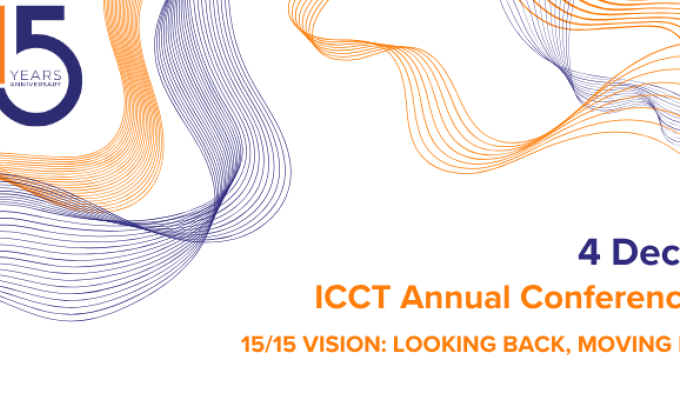Last month, the Southern African Development Community (SADC), an inter-governmental organisation responsible for economic, political, and security cooperation in sixteen southern African states, approved of a regional Standby Force to counter the violent extremism that has plagued northern Mozambique for almost four years. Since October 2017, the local group loosely affiliated with the Islamic State (IS), known as al-Shabaab (no link to the al-Shabaab in Somalia) has been staging attacks in the northern Cabo Delgado province, chasing away the presence of the central government as well as the local population. Characterised by extreme levels of violence, the crisis has so far led to about 2,500 deaths, as well as the displacement of nearly 800,000 Mozambicans. The group, which swore allegiance to IS in 2019, was recently designated as a Foreign Terrorist Organisation by the United States government. As the crisis endures, analysts point to the fact that al-Shabaab is becoming stronger and more sophisticated, having an increasing capacity to conquer and hold territory, while raising concerns over its growing attraction to jihadists outside of Mozambique. The long-awaited announcement by the SADC provides a timely opportunity to reflect upon the effectiveness and shortcomings of the counter-terrorism approach taken by Mozambican authorities thus far, and the potential of this regional intervention to address the spread of violent extremism in the country. Neither Mozambican security forces’ initial response, nor the reliance on private military contractors (PMCs) have prevented violence from escalating, nor al-Shabaab’s influence from spreading. In this context, the announcement has been welcomed by many local and international observers, fearing that al-Shabaab might further expand and destabilise the region. However, for SADC’s deployment to represent a real turning point, not a mere default solution, it will have to overcome several major challenges. Reviewing earlier counter-terrorism operations conducted in Cabo Delgado, this perspective will draw upon lessons learnt to assess the set of—similar and new—challenges that lie ahead for the regional force.
The government’s initial response
Al-Shabaab (also referred to as Al-Sunna wa Jama’a) is believed to have grown out of an Islamist sect that emerged around 2007 and became increasingly violent over the decade that followed. A variety of factors made Cabo Delgado a fertile ground for violent extremism: the province is one of the poorest in the country, with a predominantly Muslim population that feels neglected by the largely Christian ruling elite in Maputo, the country’s capital located in the south. The region is home to major gas reserves today (worth more than $50 billion USD), which foreign energy companies have been actively extracting without any of the profits benefiting local populations. Against the broader socio-economic background to the crisis, the governmental response to al-Shabaab’s rise has first and foremost been one of force. Following the attacks in 2017, it sent in a special rapid reaction unit of the national police, the Unidade Intervenção Rapida (UIR, or rapid intervention unit), supported by the national military. However, in part because Maputo had been put under foreign pressure to prioritise economic development over defence spending after its long civil war (1977-1992), these forces were insufficiently equipped and trained, and suffered from low morale. According to local reports, this led to security services refusing to defend towns such as Mocímboa da Praia, which was eventually captured by al-Shabaab. The government’s response has not only suffered from a lack of resources; several human rights groups have accused government forces of arbitrary arrest waves and detentions, torture and extrajudicial executions—of both al-Shabaab members and civilians suspected of collaborating with the group. Maputo has also distributed weapons among a variety of local militias, believed to consist of veterans from the country’s civil war that have been “useful allies” of the security forces up to now. This has led to concerns about these groups’ relative operational autonomy and the possibility that they may deviate from government-sanctioned operations in the future. In addition to the lack of operational preparation and coordination, the government exacerbated tensions by adopting a communication strategy that first downplayed the severity of the situation, and then held that the attacks were part of “a foreign conspiracy” to keep the country poor—rather than acknowledging the existing local grievances that fuelled the anti-Maputo sentiment among many in Cabo Delgado. It has also been repressing, detaining and expelling Mozambican and foreign journalists that have tried to report on the situation. Some believe that this was aimed at preventing foreign industrial partners and investors from withdrawing from the country. But even this approach had its limits, with the French energy company Total suspending its operations in northern Mozambique due to “force majeure” in April 2021. Aware of its limited capacity to counter al-Shabaab, Maputo has been searching for ways to support its security forces. Strikingly, however, it has been very hesitant until now to accept—let alone request—foreign military support. This strategy has been met with bewilderment on the part of countries ready to engage, especially its South African neighbour. Although Maputo had accepted the deployment of small Portuguese and US military training missions by early 2021, it has remained reluctant towards conducting larger and more operational missions up to now. The main reluctance of the Mozambican government seems to have been concerned over its national sovereignty. The ruling socialist FRELIMO party has long been wary of reliance on other states and the forms of imperialism that may result. The memory of the local and regional proxies that participated in the country’s 16-year-long civil war only served to heighten misgivings about international involvement in the conflict. The government also generally distrusts several of its neighbours, accusing Tanzania of sponsoring al-Shabaab, and experiencing increasing strain in the traditionally warm relationship with Zimbabwe due to a border conflict. Nevertheless, critics also point to another motive for obstructing an international mission in northern Mozambique: Cabo Delgado has long been a crucial hub for illicit trafficking, especially of heroin, between southern Asia and the African continent. As this trade is believed to be highly beneficial to several in the President’s close circle, a foreign military intervention could subject the government to external scrutiny.

Administrative map of Mozambique (source: Shutterstock)
The controversial use of private military companies
Resistant towards any international interventions, but incapable of countering the threat posed by al-Shabaab alone, Maputo has favoured the recruitment of private military companies (PMCs). With little public acknowledgement, around 200 operatives from Russia’s Wagner group reportedly arrived in the country in September 2019 to provide training and combat support to Mozambican forces in Cabo Delgado, but their intervention was short-lived. Suffering several casualties in the first months of deployment, the group was eventually forced to retreat from the province following important losses in November 2019. Despite this unfortunate experience, Maputo maintained its strategy, turning to the South African Dyck Advisory Group (DAG) in April 2020. After a difficult start, the group has most notably been praised for its intervention during the Palma attack in March 2021. Despite its success in Palma, the company eventually saw its contract end in April 2021. Although it is unclear whether any Wagner operatives remain in the country, DAG’s personnel are believed to be on standby in the vast network of Mozambican nature parks. Private contractors have recorded some operational successes. In addition to its crucial assistance during the Palma attack, DAG’s aerial support has reportedly allowed Mozambican forces to claim some victories in Cabo Delgado, including containing al-Shabaab’s advance towards Pemba. Despite these short-term gains, the long-term impact of PMCs’ actions remains much more uncertain. In the absence of a larger strategy, the 120 police of the rapid intervention unit trained by DAG in counter-terrorism techniques might be the only (positive) enduring legacy of the group’s intervention. Over PMCs’ intervention period, the country has witnessed a dramatic rise in the number of attacks, with 570 incidents conducted in 2020. In the past year, Islamist militants have been able to conduct lethal raids on important towns, including Mocímboa de Praia, Macomia and Namacande, demonstrating PMCs’—and national forces’— inability to halt the spread of violence. Diverse reasons are reportedly behind these mixed results. First, Wagner personnel reportedly lacked knowledge of the local terrain, noted to be particularly tough in the remote and poorly connected north-eastern province, where thick undergrowth allows militants to conduct bush warfare while making the PMC’s high-tech equipment ineffective. While having previous in-site experience in Mozambique, DAG’s operational capacity has, for its part, been significantly hampered by technical and logistical issues: its helicopters could not be operated at night and their limited flying range required regular refuelling in a region where finding supply sources proved challenging. Both contractors have moreover been faced with the challenge of cooperating with domestic forces. Wagner’s capacity to operate is indeed believed to have been undermined by increasing tensions between private operatives with national defence forces following some unsuccessful operations. Contracted by the Ministry of the Interior, and operating alongside the Mozambican police, DAG has reportedly found itself in the middle of institutional rivalries between the police and the military. In addition, the overall secrecy that has surrounded PMCs’ operations, and especially the lack of clarity on the nature and degree of their cooperation with state security and defence forces “makes it hard to ensure that there is any form of effective information sharing with national forces.” Most importantly, PMCs’ operations in Mozambique—as in other regions of the world—have been highly controversial, as even operational successes have often been overshadowed by serious allegations of misconduct and abuses. While the company has continuously denied these accusations, DAG has for instance been accused of having prioritised the evacuation of contractors of Total, in charge of developing a natural gas project site near Palma, over local Mozambican populations during their rescue operation in March 2021. Based on local testimonies, a report by Amnesty International has moreover pointed to DAG having “fired indiscriminately into crowds, or dropped ordnance, without distinguishing between combatants and civilians.” The company is notably accused of having destroyed a hospital during the attack on Mocímboa in June 2020. Lionel Dyck has recognised that its crews “had fired into crowds when terrorists were attacking his men from among civilians,” and indicated having hired a law firm to conduct investigations into these allegations. While justifying his company’s involvement in counter-terrorism operations in northern Mozambique by the absence of any credible alternatives, affirming “doing something that nobody else can do or has wanted to do,” this narrative no longer stands.
The upcoming SADC’s military intervention: Mozambique’s last resort?
On 23 June, after months of discussions and prevarication, SADC’s sixteen member states agreed to deploy troops under its Standby Force to “combat terrorism and acts of violent extremism in Cabo Delgado.” Endorsing the recommendations of the technical team deployed in Mozambique following the summit held in Maputo in April 2021, which advised sending a 3,000-strong joint military force, comprising land, air and naval capabilities, this deployment falls under the framework of the SADC Mutual Defence Pact. This new development has been welcomed by many local and international observers that had advocated for southern African states to mobilise and help the Mozambican forces to restore security and ensure civilian protection against attacks in Cabo Delgado. In spite of the reservations that surround SADC’s capabilities—the organisation often being portrayed as a weaker organisation than other regional bodies on the continent, especially ECOWAS— many see in this intervention the “best chance of getting a response that is comprehensive and serves the region.” Among the main arguments in favour of a regional intervention are the risks of a violent spill-over into Mozambique’s neighbouring states and the related need for a coordinated response, including through cross-border intelligence, to manage jihadists’ infiltration. It is in regional powers’ interest to find a durable solution in order to prevent it from further escalating. However, this announcement does not come without uncertainties. While a $12 million USD budget has been set, concerns still surround SADC countries’ ability—and willingness—to actually deploy the financial and human resources needed to assemble and sustain an effective force, with some countries having already announced they would not send troops on the ground. In addition, SADC will also face national authorities’ reticence to accept any interference in internal affairs and allow foreign troops on its territory. Even before the announcement was made, much debate surrounded the legal basis for such an intervention, in particular in the absence of Mozambican authorities' consent, without which SADC would have no other option than to rely on a UN Security Council resolution. However, there has been no previous instance of SADC launching an operation without the host country’s consent. In addition, the fact that the announcement was made during a summit held in and chaired by Mozambique has been seen as a sign of tacit agreement. Yet, while regional forces were meant to start deploying on 15 July, the initial calendar already suffered some delays. Initially linked to the Mozambican authorities’ late signing of the Status of Forces Agreement, required for foreign troops to operate throughout the country, further delay might have resulted from recent developments in South Africa, where violent unrest has led to domestic deployments under Operation Prosper. Eventually responsible to provide the SADC Standby Force commander, despite President Nyusi having expressed on multiple occasions that any SADC intervention would have to be led by Mozambique, it remains unclear how South Africa’s domestic affairs will impact the regional intervention in Cabo Delgado. However, recent reports have finally confirmed the arrival of SADC's advance elements in Cabo Delgado. In many regards, this intervention will represent a first for the regional bloc. It will differ from engagements in Lesotho and the DRC in the 1990s, for which SADC authorisation came after deployment. Contrary to South Africa, Tanzania and Malawi's current support to the United Nations Mission for the Stabilization of the Democratic Republic of the Congo (MUNOSCO), the regional bloc will not benefit from the UN umbrella and will bear full responsibility for southern African states’ engagement in the country. As all eyes have turned on the evolution of the Islamist violence that has torn Cabo Delgado, much is at stake for SADC in this intervention. While a successful end to this military operation would “give SADC’s image a major boost, failure, however, could tarnish its image of protecting a fellow member country and the region for years to come.”
Challenges, legacies and lessons learned
While Wagner’s lack of experience with the (type of) environment and tactics employed by the violent extremists has reportedly been at the core of the group’s struggle in Cabo Delgado, SADC countries’ forces present their own capacity and logistical deficits. In addition to structural issues, such as a lack of military equipment and capabilities, regional forces have mainly been involved in peacekeeping missions, and thus lack expertise and preparation in counter-terrorism operations. Besides the logistical complexities of deploying a large contingent in the restive Cabo Delgado province due to the lack of transport and other types of infrastructures, forces will moreover be faced with the absence of a solid intelligence network allowing for more information to be gathered from the field—a key factor in understanding and addressing the complex dynamics behind the rise of IS-linked militants. In parallel, an important challenge will be to ensure effective cooperation between all operating forces involved. While allegedly being one of the reasons behind PMC’s struggles in Mozambique, SADC member states engaged in DRC have already experienced the negative impact that a lack of cooperation with domestic forces can have on an overall operation. The situation promises to be particularly complex in Cabo Delgado. Not only will coordination have to be ensured within SADC multinational troops, as well as with national Mozambican forces, but also with a Rwandan contingent. On 9 July, Kigali officially announced the deployment of 1,000 troops at the request of the Mozambican authorities for “combat and security operations, as well as stabilisation and security-sector reform,” reportedly creating discontent within the SADC, which believes it was insufficiently informed about this bilateral agreement and had expected the Rwandan forces to be operating under the SADC mandate. In parallel, the number of actors getting involved continues to multiply, with the European Union having announced the setting up of a training mission, the EUTM Mozambique, to support Mozambican armed forces. Of great concern is also the heavy emphasis still being placed on military approaches, with experts calling for an urgent but measured security response. Whereas PMCs are not supposed to perform tasks outside of the scope of their precise contractual mission, increased expectations are placed on the regional bloc to provide a more comprehensive and durable solution to the current crisis. Unless underlying grievances fuelling violent extremism in the region, and needs for humanitarian assistance, including for internally displaced persons, are simultaneously addressed, short-term operational gains will not suffice to avoid violence from resuming after intervention. There have been far too many examples of the serious shortcomings of heavy-handed approaches, which have the potential to further worsen the situation, as seen in the Sahel where violence perpetrated by state forces has eventually been causing more casualties than violent extremism, in turn feeding local grievances and serving terrorist groups’ narratives. In particular, southern African states will have to deal with the burdensome legacy established by counter-terrorism efforts deployed so far. Serious abuses having reportedly been committed by private contractors, as well as Mozambican national security and defence personnel. Building trust between the population and counter-terrorism forces, and ensuring compliance with human rights and the rule of law at all levels, will thus be challenging, especially considering SADC countries’ own track-records in human right abuses, but arguably decisive. While distinguishing itself from previous endeavours, with the first notable difference being the public announcement of the launch of the SADC force, which contrasts with the opacity that has surrounded PMCs’ interventions in the country as well as the operations by state security forces, SADC will have to show accountability and transparency at all levels in its operations. Contrary to private contractors hired for a pre-set period of time, after which withdrawal can take place, the regional bloc will furthermore face the challenge of a long-term engagement. Generally resource- and time-intensive, some doubts remain as to whether SADC will demonstrate the political buy-in and sustainability required by such interventions. It also brings the risk of seeing its troops getting stuck in an enduring counter-terrorism campaign, and raise the delicate question of an exit strategy. As illustrated by French Barkhane troops slowly pulling back from the Sahel after eight years of operation, it may prove very difficult to withdraw without leaving behind a security vacuum. In the case of Mozambique, some are notably concerned that an over-militarisation and protracted international intervention might actually “attract more foreign fighters eager to take on international forces and turn the province into a battlefield pitting Western-backed forces against transnational jihadists seeking to open a new frontier.”
Conclusion
Against the backdrop of the earlier counter-terrorism approaches in northern Mozambique, the launch of a regional SADC intervention arguably represents a step in the right direction. The initial response by the Mozambican government – which was marked by a lack of coordination of security forces, violent excesses and an evasive communication strategy – could not prevent an escalation of the conflict. PMCs’ operations in Cabo Delgado similarly not only proved unable to contain extremist violence, but exacerbated the lack of transparency of the state’s response and led to serious allegations of abuses. This further increased the distance between the central government and the aggrieved northern population. A number of challenges will nonetheless have to be addressed for SADC to effectively contribute in tackling the rise of extremist violence in northern Mozambique. Some might be fairly similar to those encountered by Mozambican forces and PMCs so far, such as issues linked to the province’s extremely complex operating environment, regional forces’ limited experience in counter-terrorism campaigns, and the need to ensure the protection of civilians and strict observance of human rights. To a certain extent, some dynamics might be even more challenging, with the multiplication of actors deployed in the region further complicating the effective cooperation between all parties on the ground. But above all else, the intervention will have to be part of a broader strategy, providing much needed solutions to the socio-economic and governance issues that have fuelled the emergence and continued rise of extremist violence in Cabo Delgado, and yet remained largely neglected. That will influence the overall success or failure of the intervention, and the ability of the SADC—and Mozambique itself—to avoid becoming embroiled in an enduring ‘war against terrorism’ that might have devastating effects for southern African states and populations. Counter-terrorism analysts worldwide will follow the SADC intervention with great interest. Since the US announced its full troop withdrawal from Afghanistan, and France is set to end its counter-terrorist Operation Barkhane in the Sahel, the effectiveness of international, Western-led military interventions to stabilise terror-struck countries is more debated than ever. If carefully managed, and able to bring durable solutions to the Mozambican crisis, this regional intervention could set an important precedent for an alternative way ahead.
Photocredit: Senderistas/Shutterstock









